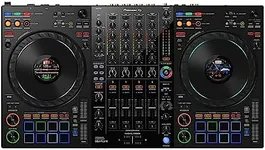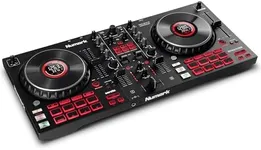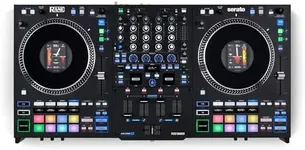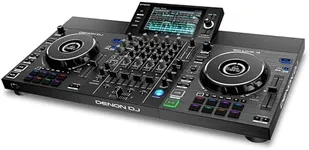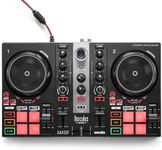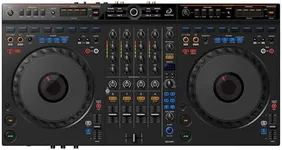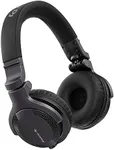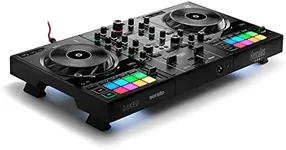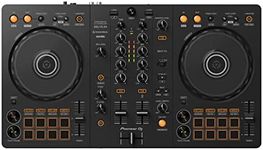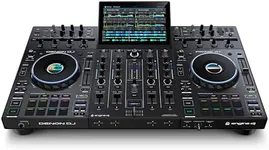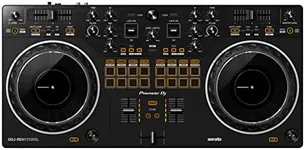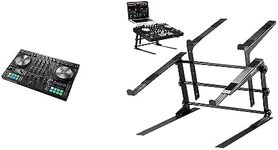Buying Guide for the Best Starting Dj Equipment
Choosing the right DJ equipment can be a daunting task, especially if you're just starting out. The key is to understand what each piece of equipment does and how it fits into your overall setup. By focusing on the essential components and their specifications, you can make an informed decision that suits your needs and helps you grow as a DJ. Here are the key specs to consider when selecting your starting DJ equipment.ControllerA DJ controller is a device that allows you to mix music using software on your computer. It typically includes jog wheels, faders, knobs, and buttons to control various aspects of your mix. The controller is important because it serves as the central hub of your DJ setup. When choosing a controller, consider the number of channels (2 or 4), the quality of the jog wheels, and the layout of the controls. For beginners, a 2-channel controller with a simple layout is usually sufficient. As you gain experience, you might want to upgrade to a 4-channel controller with more advanced features.
SoftwareDJ software is the program you use to mix and manipulate your music. It allows you to load tracks, set cue points, apply effects, and more. The software is crucial because it determines how you interact with your music library and your controller. Popular DJ software options include Serato, Traktor, and Rekordbox. When choosing software, consider its compatibility with your controller, its user interface, and the features it offers. Beginners should look for software that is easy to use and has a supportive community or tutorials available.
HeadphonesDJ headphones are used to cue up tracks and monitor your mix. They need to be comfortable, durable, and provide good sound isolation. The quality of your headphones is important because it affects your ability to hear details in the music and make precise adjustments. When choosing headphones, consider the sound quality, comfort, and build quality. Over-ear headphones with good noise isolation are generally preferred by DJs. Look for headphones that are comfortable to wear for long periods and have a durable build to withstand the rigors of DJing.
SpeakersSpeakers are used to play your mix out loud for your audience. They need to provide clear, powerful sound and be suitable for the size of the venue you will be playing in. The quality of your speakers is important because it affects how your audience experiences your music. When choosing speakers, consider the power output (measured in watts), the size of the speakers, and the sound quality. For small venues or home use, a pair of powered monitors with around 50-100 watts of power should be sufficient. For larger venues, you may need more powerful speakers or a PA system.
MixerA DJ mixer is a device that allows you to blend and transition between different audio sources. It typically includes faders, EQ controls, and effects. The mixer is important because it gives you control over the sound and allows you to create smooth transitions between tracks. When choosing a mixer, consider the number of channels (2 or 4), the quality of the faders and knobs, and the available effects. For beginners, a 2-channel mixer with basic EQ and effects controls is usually sufficient. As you gain experience, you might want to upgrade to a 4-channel mixer with more advanced features.
